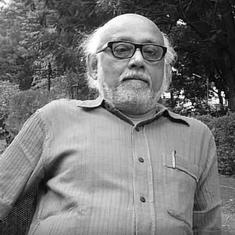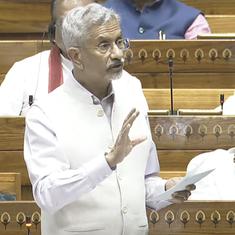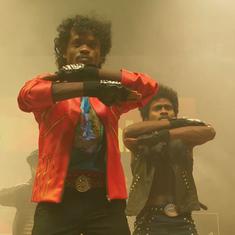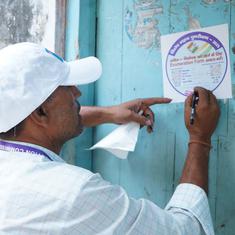Tere Bheege Badan ki Khushboo (1974)
Film soundtracks were always an especially important medium for Pakistani singers to create an audience, even those with serious intent such as Mehdi Hassan. So many of his popular songs were delivered as part of larger cinematic tapestries. And so it is not inappropriate to start off with a song Hassan recorded for the 1974 film Sharafat, starring the super star duo Nadeem and Shabnam. The film (a mild hit) critiqued hypocritical middle class morals and told a complicated story of a love affair and improbable marriage between a small time crook and a lonely, misunderstood prostitute. Take or leave the story, this song, with music composed by the great Bengali musical director (and husband of Shabnam!), Robin Ghosh, is one of Hassan’s most enduring film hits.
Hassan was the scion of a kalawant family stretching back 16 generations. His father and uncles sang for nawabs and maharajas across northern and central India, from Jaipur to Indore, and even Nepal. As a young lad Mehdi was not only immersed in the rarefied cultural atmosphere of these royal courts but was exposed to other non-musical aspects of life which came in handy in later years.
He was identified at the age of six as having what it takes to carry on the family tradition. To develop his lung capacity, he was inducted into a formal and intensive training regime, which encompassed wrestling and running as well as drinking cups of pure desi ghee. Years later, in interviews he lamented that modern singers knew nothing of the hardships or discipline that singers of his generation endured implying, at the same time, their inferiority as artists.
At the time of Partition, Mehdi and his father found themselves performing in some royal courts in what had suddenly become Pakistani territory. Unable for a number of reasons to return to India, and cut off from their patronage networks, Mehdi was essentially abandoned to his fate. “Chaos was everywhere. Masses of people were moving from one side of the country to the other,” he told an interviewer. “I was left to fight with reality.” Recalling the luxury motorcars of the maharajas in the princely states he turned to another childhood passion, mechanical tinkering, to make ends meet.
With just Rs 10 he set himself up near Faisalabad as a mechanic repairing cycles and motorcycles. For the next several years, the majestic voice lay unheard as he made his living servicing engines and tractors across the towns of Punjab until he landed finally in the princely state of Bahawalpur. Though it was his hands that earned his bread, all the while he rose each day at 3am before the first namaz to exercise, and practice his singing, unable, he confessed, to break the habits his father had instilled in him.
Zindagi Mein To Sabhi Pyar Kia Karte Hain (1973)
Originally appearing in the 1973 film Azmat, this ghazal speaks of deep undying love and affection.
Zindagi mein to sabhi pyar kiya kartay hain (everyone loves in their lifetime)
mein to mar kar bhi meri jaan tujhay chahoon gaa (But I will yearn for you even after I die).
Hassan’s gossamer light reading runs the scales with effortless ease giving a sense of release from the rather intense lyrics.
In 1949 with a well-established mechanic business in Bahawalpur, Hassan took his first trip to Lahore, “to check out the music scene, radio, films and the like”. Although he immediately fit into the musicians’ colony in Chunna Mandi in Lahore’s old city, in the wake of Partition the city’s film and radio industry was still non-functional and presented him with no opportunity to pursue music full time. Disappointed, he left Lahore for Sargodha where he entered into yet another business relationship with an acquaintance he’d made in Lahore.
Some months later, as a guest at a friend’s wedding, Hassan sang an Indian film song without any accompaniment. As luck would have it, Rafiq Anwar, a film director, who was also at the function, was so impressed he handed Hassan Rs 1,000 and said, “I want you to sing all the songs in my next film.” This fateful interchange gave Hassan sufficient confidence to leave his business enterprises behind for good. “At last, my real profession is ready for me,” he told his partner, on the eve of his departure to Karachi to join Rafiq Anwar. Several months later Hassan had recorded his first ghazals, for the film Shikaar and the world was introduced to the Voice.
Dukhwa Main Ka Se Kahon (Thumri)
Critics and fans alike have marveled at Hassan’s ability to sing with such lightness, given his essential training in the classical tradition. Hassan himself confirmed that most classical singers were unable to sing film songs because their years of practice and training made it difficult to capture the softness and gentle touch. He considered it one of God’s gifts to him that his father and uncle had trained him to sing both heavy classical and light ghazal and semi classical works such as this thumri based on Raga Tilak Kamod and Des.
Ranjish hi Sahi
One of Ahmad Faraz’s great ghazals as well as one of the most beloved of Khan Saheb’s interpretations. As ever his singing seems to simply flow from deep within as if its source is an eternal spring. By the time he breathed his last, Mehdi Hassan had not only a following of millions of fans across the world but had been honoured with high civilian awards from the governments of Pakistan, India and Nepal.
Note: All biographical details in this article are from recorded interviews with Mehdi Hassan himself, available in various sources.










